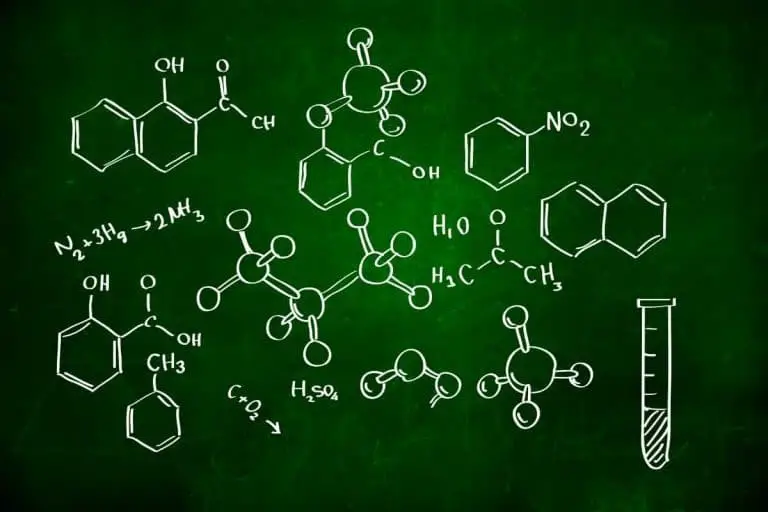Is Chemistry a Useless Degree?
You may think that all science majors are created equal and that a chemistry major will have a much greater chance at getting a job than, say, a liberal arts major. But if you’ve spoken to a former chemistry major who has spent some time in the “real world,” you’ll quickly learn that this isn’t the case. Is there any upside to getting a chemistry major, or is it as useless as some people make it out to be?
Chemistry is NOT a useless degree like some jaded chemistry majors will tell you. However, it can be more challenging to find a job with a chemistry degree than other science degrees. If you’re passionate about chemistry, you may want to have a specific career path in mind.
Let’s get into the pros and cons of majoring in chemistry. You may decide that a chemistry major isn’t for you after all.

Reasons You May Not Want to Major in Chemistry
If you’re considering a chemistry major, the first thing you need to know is that this degree is not for people who want to make easy money. Chemists must take grueling courses, and the few chemistry jobs out there are highly competitive.
Here are just a few of the reasons you may ultimately decide not to pursue a chemistry degree:
- There are very few jobs for chemists. This is the biggest reason you may opt for a different major and a valid one. Even if you love chemistry and are quite good at it, there is a sea of chemist applicants applying for a handful of jobs. The likelihood of you beating out every single one of them is not high.
- These jobs don’t always pay well. Even worse, chemistry jobs don’t pay the same amount that other science- and math-based majors like engineering do. Many of the most common chemist jobs are hourly, not salaried, according to Indeed. Some are barely above minimum wage.
- Chemistry classes are notoriously difficult. If you want to put yourself through the academic ringer, take chemistry classes. Organic chemistry, in particular, is known for its difficulty and may make you rethink your whole college career (see Is Organic Chemistry Harder Than Calculus?).
If you take a chemistry class early on in your undergraduate career and find that you are struggling just to keep up, you’ll probably be facing an uphill battle after you graduate.
Reasons You May Want to Major in Chemistry
Just like any other major, you shouldn’t only be thinking about how much money you’re going to make when you decide what you’d like to study in undergrad.
There are several reasons you may decide that a chemistry degree is right for you.
- Chemistry is your passion. Not everything is about money. Sometimes, all that matters is what you love. If you’ve been tinkering with chemicals and equations since before you can remember, you might be satisfied with wherever a chemistry degree will take you.
- You have your heart set on a career path that will require chemistry. If you’re not scared of a smaller salary and know exactly what you want to do with your life, don’t let the nay-sayers win. Do a lot of research into the career you want, and ask people who have this career how they feel about their chemistry degree.
- You are pre-med. Chemistry is a great major for students who want to eventually become a surgeon or doctor. Organic chemistry, in particular, will help you understand what compounds make up the human body. Just be prepared to take several extremely tough courses.
Note that even the most intelligent chemistry majors will struggle at some point in their college careers.
If you have weighed the pros and cons of this challenging field of study and decided that you still want to get that chem degree, you must commit to four years of dedicated hard work.
See my detailed breakdown of Organic vs Inorganic Chemistry.
Jobs for Chemistry Majors
So what kind of jobs can chemistry majors get? Despite what you may be hearing, chemistry graduates have plenty of opportunities, even if they don’t pursue a graduate degree.
Here are just a few of the jobs you can get with a chemistry degree, according to InChemistry.com.
- In-house Chemist: Nearly every manufacturing industry will need a chemist at some stage of development. Companies that manufacture make-up or hair products will need a chemist on board to create safe products, as will many food and beverage companies.
- Chemistry teacher: Teaching is one of the noblest professions there is. You won’t make a lot of money, but you just might foster a love of chemistry in students.
- Toxicologists: Toxicologists specialize in poison and other substances that have adverse effects on the human body. They might be involved in poison control, drug testing, or criminology.
- Pharmacologist: On the flip side, you can enter the field of pharmacology, ensuring that over-the-counter drugs and medicine are safe and adhere to government standards. This career will probably require a graduate degree, but pharmacologists generally make much more money than chemists in other fields.
Keep in mind that there are thousands of applicants gunning for only a few jobs, so you may need to apply to several different companies and positions before finding one that will take you on.
Plenty of fields of study are like this, though. Just ask a liberal arts major! Some students find that this competitiveness makes them more motivated to rise to the top of their class.
This YouTube video gives excellent insight into how a Chemistry degree stacks up. It’s about 10 minutes long but I highly recommend you take the time to watch it.
Final Thoughts
Some chemistry grads regret their decision to follow through with their degree. Others find that chemistry got them exactly where they wanted to go. Ultimately, the right choice for you is a personal one, and it all comes down to the kind of job you want to have after you graduate.
But chemistry isn’t a useless degree by any means.
Students who have a deep desire to understand chemicals and their place in our world will find getting a chemistry degree an extremely rewarding experience.
Recommended Reading:







